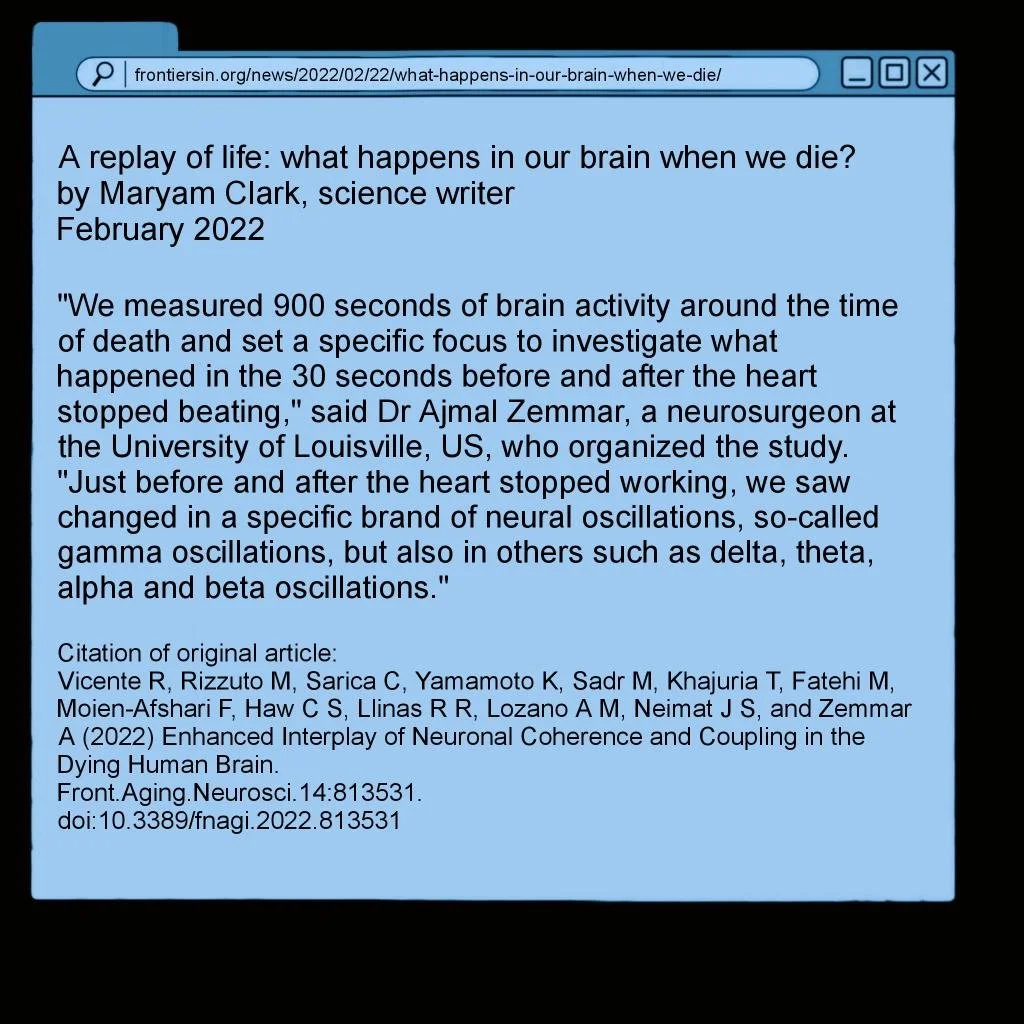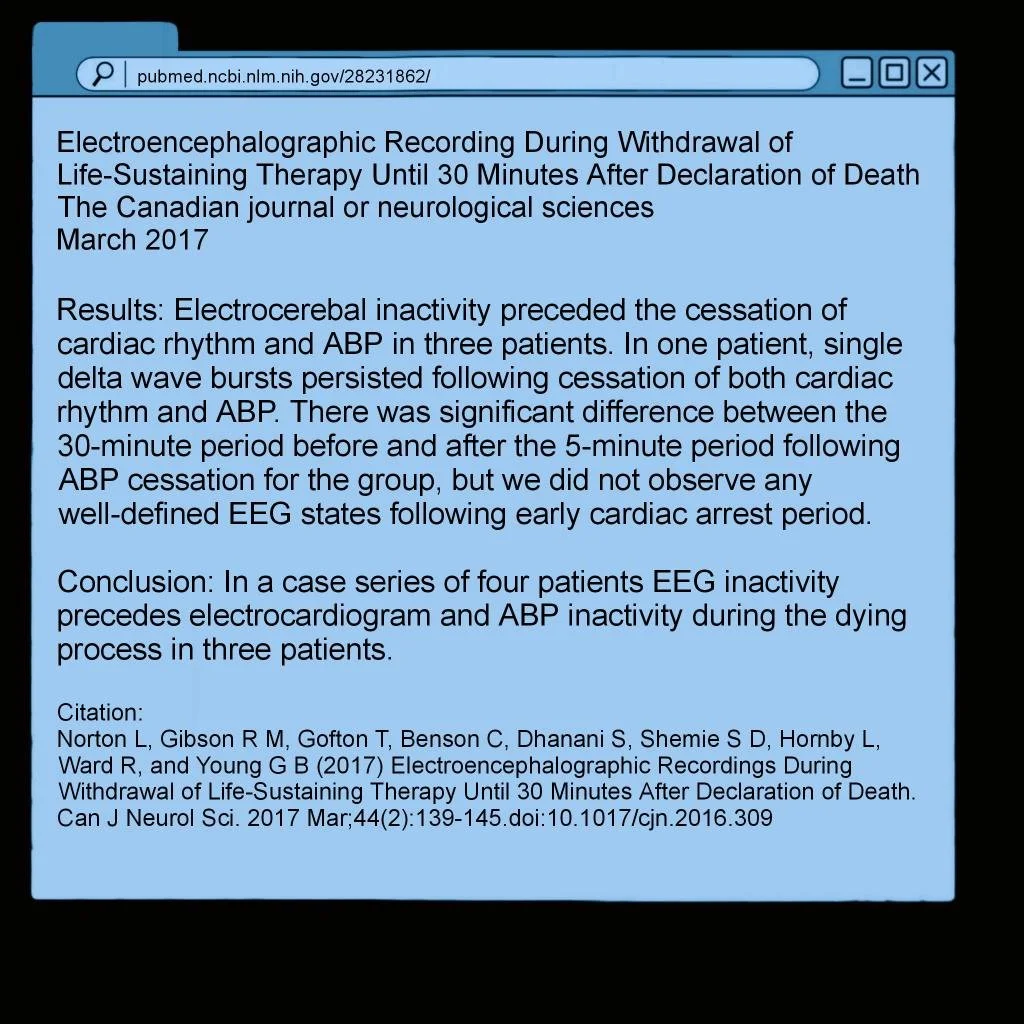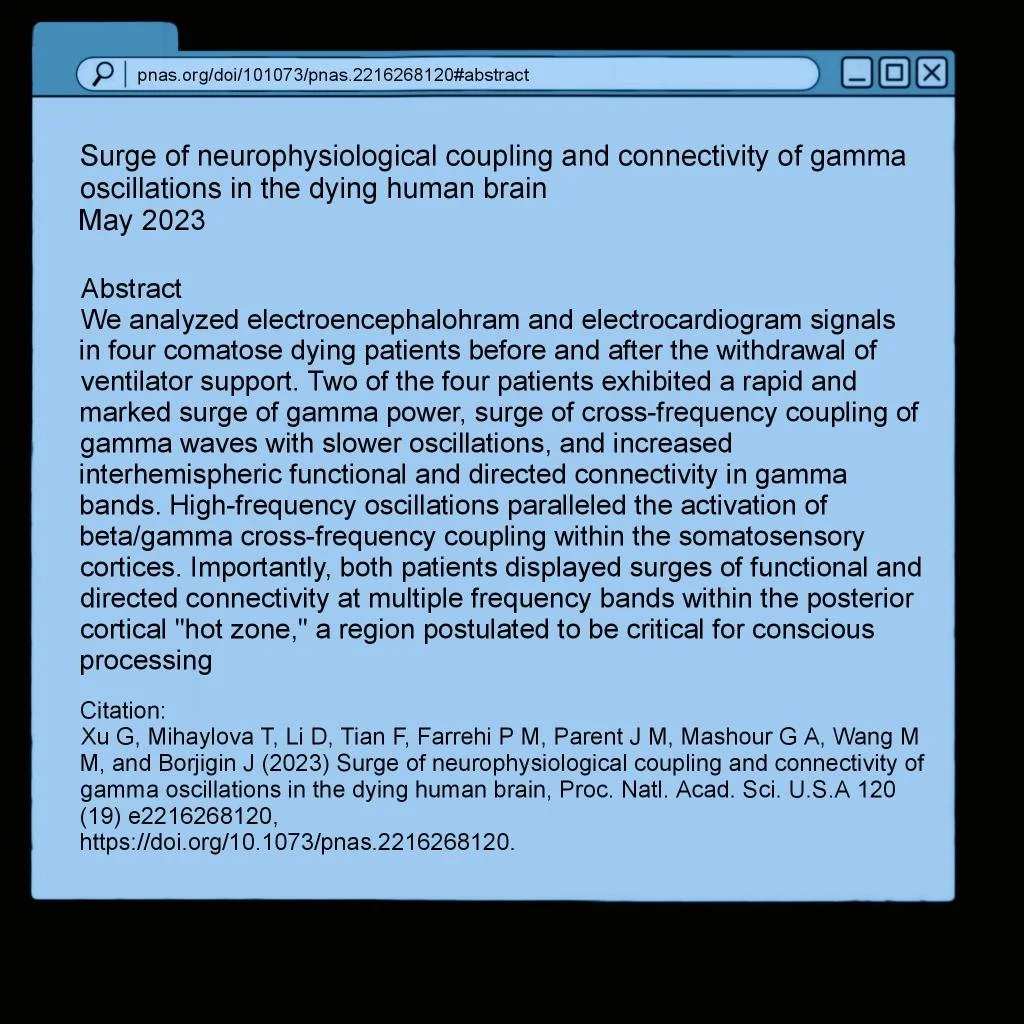Psychological Afterlife
“Is there an afterlife experience that is separated from this form of reality?”
Dear Reader,
Could we experience another form of afterlife when our time comes? To be more explicit, I am writing about the plausibility of experiencing a form of afterlife through the lens of your current ego, meaning your sense of self, name, narrative, and memories.
The afterlife I’m referring to is more of an imaginative experience of what comes after death. Concepts like the underworld, hell, heaven, experiencing a void of nothingness, or having your life flash before your eyes. These are the types of concepts I will be referring to in today’s writing. It would seem that this concept of an otherworldly afterlife contradicts the logic in my previous writings; though to me, these concepts of the afterlife and existence can co-exist simultaneously. This is because when I refer to this otherworldly concept of the afterlife, I think of it as a psychological processing of death, not another world where the spirit goes after death.
There have been many times I have wondered where the human belief in otherworldly afterlives originates from. What I find even more fascinating is the similarities and differences given to describe the afterlife by various cultures. I’ve often wondered where their similarities came from and why there would be so many depictions of a negative place versus a positive place. At the time, I was sure it was more so about where you end up mentally in the world as we know it. If you act in a way that is selfish and hostile, you’re more likely to view the world as a place that is selfish and hostile (though this concept would vary in validity for different individuals).
I wasn’t convinced that was the only reason that would happen, and so I decided to look into more about why others believe in these afterlives.
In my search, I had read entries from those who had claimed to have died and been resuscitated medically; they would recount an experience of going to these otherworldly places before coming back, and these stories weren’t very consistent with the next, only some would have similarities, from what I would assume came from similar beliefs. To me, this seemed to resemble a temporary dream, one that, to them, would feel eternal, considering they would not remember a state of actual loss of conscience; they would only recall what they experienced and assume that was the reality of death. Who’s to say we don’t dream as we die? In more modern times, it seems like the most likely occurrence during a near-death experience is to have your life flash before your eyes, essentially a memory recall of all the important moments in your life. This may not be an otherworldly place, but it would be a sign of psychological processing of death.
I’d like to consider the vast differences between individual minds. I believe it is likely that each person would have a distinct experience, with similarities here and there. I think the most probable afterlife an individual would encounter is the afterlife that is shaped by what they subconsciously believe; our beliefs would most likely influence the way our minds process dying, a lot like how our beliefs influence the way our minds process living.
I have been looking into three studies that support my ideas about a psychological afterlife. In these studies, neural oscillations, the patterns of electrical activity produced by neurons in the brain, also known as brain waves, were monitored during and after death.
Each of these studies exhibited brain activity beyond the last heartbeat in one or more patients.
Study #1
Around the year 2016, an 87-year-old man being treated for epilepsy died of a heart attack while connected to an electroencephalogram (EEG) for brain activity analysis. This led to what was referred to as “The first ever recording of a dying human brain.” If I understood correctly, Dr Ajmal Zemmar and his colleagues would study these recordings and publicize their findings in 2022. From what I gathered, to keep it simple, was that there was some form of brain activity after the heart stopped beating that could indicate the potential experience of something psychological after death. This study was mostly cited when talking about having one’s life flash before their eyes in their moment of death, though I can not be certain of that, considering I am currently not qualified to read and accurately understand the recorded data they presented.
Study #2
A study was conducted in London, Ontario, Canada, to examine the ethical and medical concerns related to organ donation. This was to understand the timing of electrocerebral activity after the heart had stopped beating. They monitored the brains of 4 patients and only found continued brain activity in one of the patients after death. (From my understanding.) Which, in the context of the psychological afterlife theory, may suggest that only a select number of people would experience a psychological afterlife. It is also worth considering that the psychological experience of an afterlife could arrive before the heart stops beating for some. Some minds may not need to process death in this way, and some minds may not be able to.
Study #3
Since 2014, there has been a study in Michigan involving four patients who died while being monitored by EEG due to cardiac arrest-induced anoxic injury. Of these four patients, two exhibited notable brain activity, particularly in a region thought to be important for conscious processing. If these findings are accurate, they could support my idea of a psychological afterlife. Additionally, it is intriguing that only a portion of the patients exhibited brain activity after their last heartbeat, corresponding to the previous study I mentioned.
In conclusion, I believe that if there were a separate afterlife distinct from our current reality, the experiences we might encounter would be a unique psychological journey. The stories I've heard and the studies I've read lead me to see this as a beautiful concept. It is as if reality has crafted a personal farewell for each of us before we are deconstructed to become part of different stories in various forms. While we may never truly know what lies beyond, this reflects my exploration of what death might be. Until next time…
Sincerely yours,
Leora



